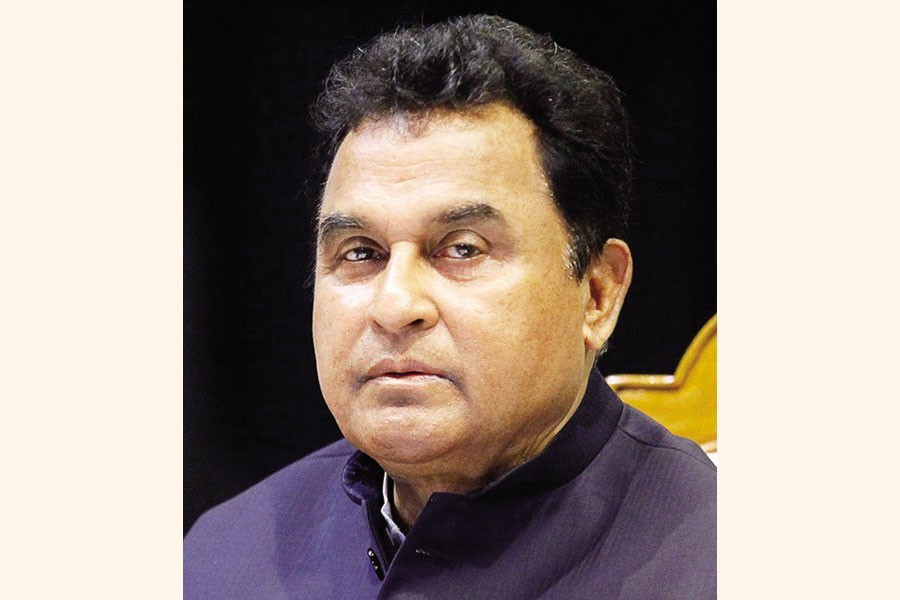Finance Minister AHM Mustafa Kamal on Sunday said the budget for upcoming fiscal year will strike a balance between the government's revenue collection and the profit earning of the businesses.
The unexpected resurgence of the Covid-19 has affected the government's plan to address the distortions caused to fiscal measures by the pandemic and overhaul the revenue structure, he said.
"The government may have to trade-off its plan that could resolve the disputes, distortions and recover the revenue," he told the 41st meeting of the National Board of Revenue's budget consultative committee.
The NBR and the Federation of Bangladesh Chambers of Commerce and Industry (FBCCI) jointly organised the virtual meeting.
Leaders of business associations and chamber bodies placed their respective proposals at the meeting for consideration in the budget for the next fiscal year (FY2021-22).
The minister said that the tax benefits to the businesses ultimately help the government mobilise more revenue and appreciated the businesses for their logical proposals.
"We had a plan to overhaul the revenue structure which may not be possible this time due to unexpected resurgence of the Covid-19," he said.
Businesses are the lifeline of the economy and they are taking so much trouble to continue their operation compared to their counterparts in the developed countries, he said.
They are also the main contributors to the impressive image of Bangladesh has created across the world, he added.
The finance minister said the businesses will have to generate employment and pay taxes to the public exchequer at the same time.
"Apparently, we think that we can proceed to a great extent by addressing the areas of gap, distortions, recovery etc., but we are forced to trade-off in some areas," he said.
The ministry of finance will sit with the NBR team to finalise the budgetary measures, he added.
The structural reforms might not take place in the upcoming budget as per the trend followed in the last two to three budgets, but there could be limited reflections, he said.
NBR chairman Abu Hena Md Rahmatul Muneem said that the NBR is approaching towards achieving the goal to curb tax evasion and expand the tax net.
"Corporate tax rates could be reduced with the expansion of tax net and it would encourage tax payment," he said.
Meanwhile, the Finance Minister said the NBR has detected some non-complaint corporate taxpayers by conducting scrutiny.
Document Verification System (DVS) developed by the Institute of Chartered Accountants of Bangladesh (ICAB) would help ensure the authenticity of financial reports of the companies, he said.
The tendency to prepare multiple financial reports by some unscrupulous businesses will be checked through the DVS, he said.
"With this system, we will get proper data of income tax and expenditures of the businesses, and eventually the tax collection will go up," he said.
Trimming the corporate tax rates will be easier if tax collection increases, he added.
Mr Kamal said the NBR is in a process of easing the doing business environment and ensuring transparency through automation, he added.
It will also help strengthen the capacity of NBR and capability of taxpayers to pay tax, he said.
The country will be able to develop high-value products as it is being graduated from the Least Developed Country (LDC), he said.
The NBR would focus on developing a business-friendly revenue administration to support the local industry, trade facilitation and curb tax evasion, he added.
"The NBR has to keep revenue collection aspects in mind to finance the government expenditure for carrying out development activities," he said.
Businesses could look at things at one perspective but the NBR will have to take into consideration different issues, he added.


